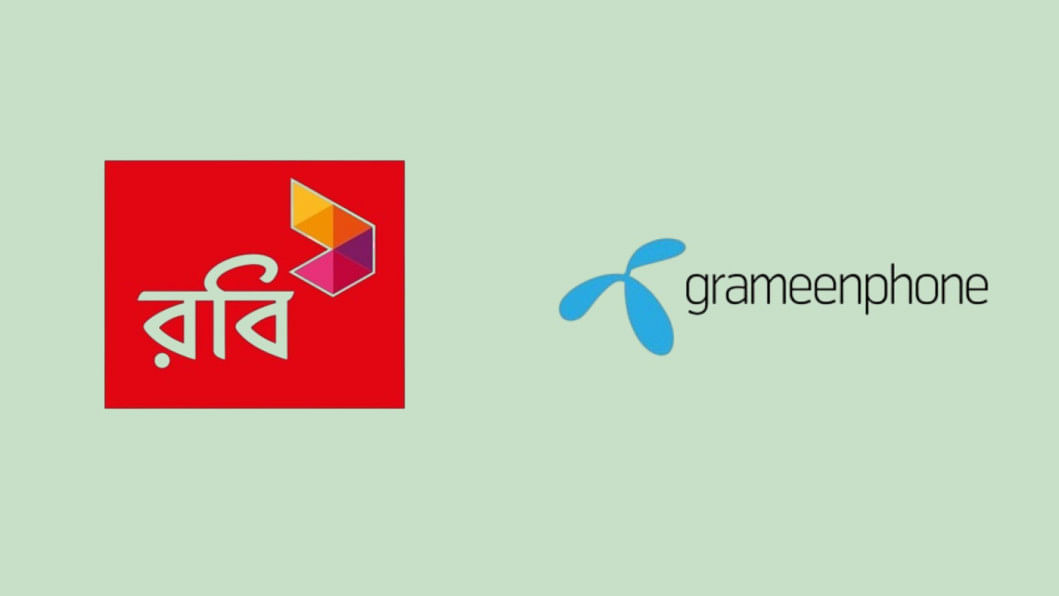GP facing predatory pricing investigation over Robi's complaint

The Bangladesh Competition Commission (BCC) is investigating a complaint by Robi Axiata PLC against Grameenphone (GP), accusing the country's largest mobile operator of abusing its dominant market position through predatory pricing and excessive subsidies.
The complaint, filed with the BCC on January 21 this year, alleges that Grameenphone's business practices violate the Competition Act 2012.
According to documents seen by The Daily Star, the commission has formally taken up the matter, with hearings already underway.
Despite being designated a significant market power (SMP) operator, Robi alleges Grameenphone "continues to disrupt the natural course of competition in the mobile telecom sector to maintain its dominant position."
Robi's complaint states, "This conduct constitutes a clear violation of Sections 15 and 16 of the Competition Act. Such anti-competitive behaviour is ongoing, as reflected in Grameenphone's pricing of SIM cards, distribution system, marketing strategies, retail price controls, and determination of retailer commissions."
Robi claims that these activities make it difficult for new entrants to survive and for existing operators to sustain their business, ultimately narrowing consumer choices and limiting innovation in the telecom industry.
"At the same time, Grameenphone continues to adopt various anti-competitive strategies to maintain its dominant market position. These practices hinder fair competition, disrupt market equilibrium, and negatively impact the introduction of new and innovative services," Robi alleges.
However, Grameenphone has denied all allegations of anti-competitive behaviour.
AHM Ahsan, chairperson of BCC, said, "We are currently investigating Robi's complaint against Grameenphone. Robi's main allegation is predatory pricing by Grameenphone."
Ahsan said when a company sells something at a price lower than its production cost, the intention is to take over the market.
He also mentioned that Banglalink has recently filed a similar complaint against Grameenphone.
ROBI'S CLAIMS
According to Robi, Grameenphone earned Tk 3,310 crore in 2023 -- over ten times more than Robi's Tk 321 crore profit.
With this high profit margin, Robi claims, Grameenphone can afford to subsidise operational costs aggressively and offer services at a rate unsustainable for its competitors.
Grameenphone holds around 45 percent of the country's mobile subscriber base, a number Robi says demonstrates its dominance and ability to "negatively influence the entire market".
Robi claims the most serious violation involves SIM card pricing.
"Grameenphone is manipulating SIM card pricing by selling SIMs below production cost through abuse of its dominant position. This forces Robi and other operators to follow suit. Grameenphone is clearly violating the Competition Act and thereby undermining market competition," it said.
In the national budget for fiscal year 2024-25, the VAT per SIM was set at Tk 300. Operators must pay this tax whether or not they collect it from customers, making subsidies almost inevitable. But not all operators can afford to do so at the same level.
Robi alleges that Grameenphone, with its profitability, sells SIMs for free or at deep discounts, bundling them with incentives, which distorts market competition.
"In contrast, smaller operators like Robi struggle to match this, which harms fair competition, limits consumer choices, and threatens long-term innovation, sustainability, and telecom sector stability," it added.
Robi says this strategy of predatory pricing, excessive subsidies, and influence over retailers effectively blocks new players from entering and pressures existing ones out.
The complaint calls for "exemplary penalties" and regulatory measures to prevent further violations and safeguard consumer welfare.
"We have conveyed our position to the competition commission. We hope the commission will take appropriate action in this regard," said Shahed Alam, chief corporate and regulatory officer at Robi Axiata PLC.
GP BINS ALLEGATIONS
In response, Grameenphone told The Daily Star that it has a publicly declared maximum retail price (MRP) of Tk 350 per SIM card, available on its website.
"Grameenphone never sells the SIM cards below cost price." However, it noted that "retailers of all the telecommunication operators sometimes on their own give discounts."
On the allegation of excessive commissions, Grameenphone stated, "Incentives are provided to drive performance and strengthen product visibility," adding that it incurs higher investment and regulatory costs than competitors, which are reflected in its commission structure.
When asked whether its pricing or distribution practices may hinder competition or block market entry, the company "categorically denied" the claim. Grameenphone said it operates fully within the bounds of the law and that its practices "have led to innovation and increased consumer choice."
"The allegations against Grameenphone are baseless and reflect a negative competitive intent," the company said, pointing out that the telecom industry is already tightly regulated by the Bangladesh Telecommunication Regulatory Commission (BTRC).
Grameenphone further mentioned that it is already subject to SMP-specific restrictions, including asymmetric mobile number portability (MNP) lock-in, marketing campaign approvals, and regulated interconnection charges.
The last hearing in the case took place on May 5, 2025, during which GP submitted a formal application to the commission, which is still pending.

 For all latest news, follow The Daily Star's Google News channel.
For all latest news, follow The Daily Star's Google News channel. 








Comments